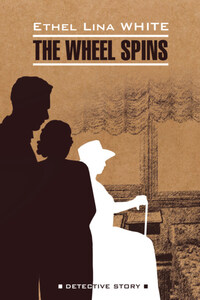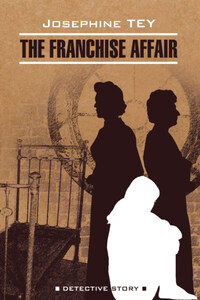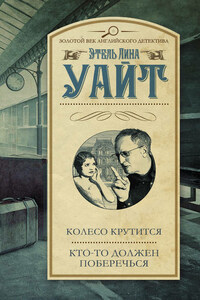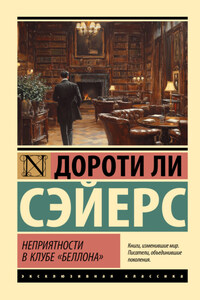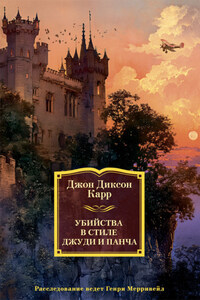Chapter one. Without regret
The day before the disaster, Iris Carr had her first premonition of danger. She was used to the protection of a crowd, whom – with unconscious flattery – she called “her friends.” An attractive orphan of independent means, she had been surrounded always with clumps of people. They thought for her – or rather, she accepted their opinions, and they shouted for her – since her voice was rather too low in register, for mass social intercourse.
Their constant presence tended to create the illusion that she moved in a large circle, in spite of the fact that the same faces recurred with seasonal regularity. They also made her pleasantly aware of popularity. Her photograph appeared in the pictorial papers through the medium of a photographer’s offer of publicity, after the Press announcement of her engagement to one of the crowd.
This was Fame.
Then, shortly afterwards, her engagement was broken, by mutual consent – which was a lawful occasion for the reproduction of another portrait. More Fame. And her mother, who died at her birth, might have wept or smiled at these pitiful flickers of human vanity, arising, like bubbles of marsh-gas, on the darkness below.
When she experienced her first threat of insecurity, Iris was feeling especially well and happy after an unconventional health-holiday. With the triumph of near-pioneers, the crowd had swooped down on a beautiful village of picturesque squalor, tucked away in a remote corner of Europe, and taken possession of it by the act of scrawling their names in the visitors’ book.
For nearly a month they had invaded the only hotel, to the delighted demoralisation of the innkeeper and his staff. They scrambled up mountains, swam in the lake, and sunbathed on every available slope. When they were indoors, they filled the bar, shouted against the wireless, and tipped for each trifling service. The proprietor beamed at them over his choked cash-register, and the smiling waiters gave them preferential treatment, to the legitimate annoyance of the other English guests.
To these six persons, Iris appeared just one of her crowd, and a typical semi-Society girl – vain, selfish, and useless. Naturally, they had no knowledge of redeeming points – a generosity which made her accept the bill, as a matter of course, when she lunched with her “friends,” and a real compassion for such cases of hardship which were clamped down under her eyes.
But while she was only vaguely conscious of fugitive moments of discontent and self-contempt, she was aware of a fastidious streak, which kept her aloof from any tendency to saturnalia. On this holiday she heard Pan’s pipes, but had no experience of the kick of his hairy hind quarters.
Soon the slack convention of the crowd had been relaxed. They grew brown, they drank and were merry, while matrimonial boundaries became pleasantly blurred. Surrounded by a mixed bag of vague married couples, it was a sharp shock to Iris when one of the women – Olga – suddenly developed a belated sense of property, and accused her of stealing a husband.
Besides the unpleasantness of the scene, her sense of justice was outraged. She had merely tolerated a neglected male, who seemed a spare part in the dislocated domestic machine. It was not her fault that he had lost his head.
To make matters worse, at this crisis, she failed to notice any signs of real loyalty among her friends, who had plainly enjoyed the excitement. Therefore, to ease the tension, she decided not to travel back to England with the party, but to stay on for two days longer, alone.
She was still feeling sore, on the following day, when she accompanied the crowd to the little primitive railway station. They had already reacted to the prospect of a return to civilisation. They wore fashionable clothes again, and were roughly sorted into legitimate couples, as a natural sequence to the identification of suitcases and reservations.
The train was going to Trieste, which was definitely on the map. It was packed with tourists, who were also going back to pavements and lamp-posts. Forgetful of hillside and starlight, the crowd responded to the general noise and bustle. It seemed to recapture its old loyalty as it clustered round Iris.
“Sure you won’t be bored, darling?”
“Change your mind and hop on.”
“You’ve simply got to come.”
As the whistle was blown, they tried to pull her into their carriage – just as she was, in shorts and nailed boots, and with a brown glaze of sunburn on her unpowdered face. She fought like a boxing-kangaroo to break free, and only succeeded in jumping down as the platform was beginning to slide past the window.
Laughing and panting from the struggle, she stood and waved after the receding train, until it disappeared round the bend of the gorge.
She felt almost guilty as she realised her relief at parting from her friends. But, although the holiday had been a success, she had drawn her pleasure chiefly from primeval sources – sun, water, and mountain-breeze. Steeped in Nature, she had vaguely resented the human intrusion.
